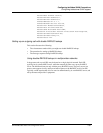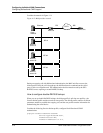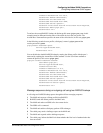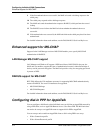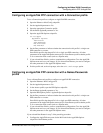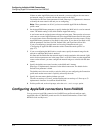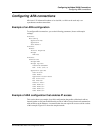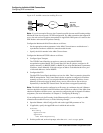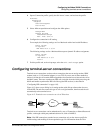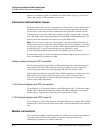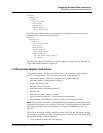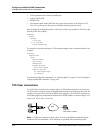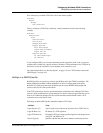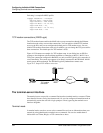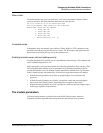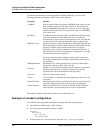
Configuring Individual WAN Connections
Configuring terminal-server connections
MAX 6000/3000 Network Configuration Guide 4-77
4 Open a Connection profile, specify the dial-in user’s name, and activate the profile.
Ethernet
Connection
margaret
Station=margaret
Active=Yes
5 Select ARA encapsulation and configure the ARA options.
Encaps=ARA
Encaps Options
Password=localpw
Max. Time (min)=0
6 Configure the connection for IP routing.
For example, the following settings are for a Macintosh with a hard-coded IP address:
Route IP=Yes
IP Options
LAN Adrs=10.2.3.4/24
The following settings are for a Macintosh that expects dynamic IP address assignment:
Route IP=Yes
IP Options
LAN Adrs=0.0.0.0/0
Pool=1
7 Exit the profile and, at the exit prompt, select the exit and accept option.
Configuring terminal-server connections
Terminal-server connections are host-to-host connections that use an analog modem, ISDN
modem (such as a V.120 terminal adapter), or raw TCP. If you use one of these methods to
initiate a call but the call contains PPP encapsulation, the terminal server forwards the call to
the MAX router. These are asynchronous PPP calls, and aside from the initial processing, the
MAX unit handles asynchronous PPP calls like regular PPP sessions (as described in
“Configuring PPP connections” on page 4-43).
Figure 4-13 shows a user dialing in via analog modem with dial-up software that does not
include PPP. The unit first routes this type of call to a digital modem, then forwards the call
automatically to the terminal server.
Figure 4-13. Terminal-server connection to a local Telnet host
Terminal-server connections can be authenticated by way of Connection or Names/Passwords
profiles, or through a third-party authentication server, such as RADIUS.
Note: Like PPP connections, terminal-server connections rely on the Answer profile for
default settings and enabling of the encapsulation type. For information about the Telco
WAN
MAX
Modem
Windows95
runningSoftCom
Telnet host



